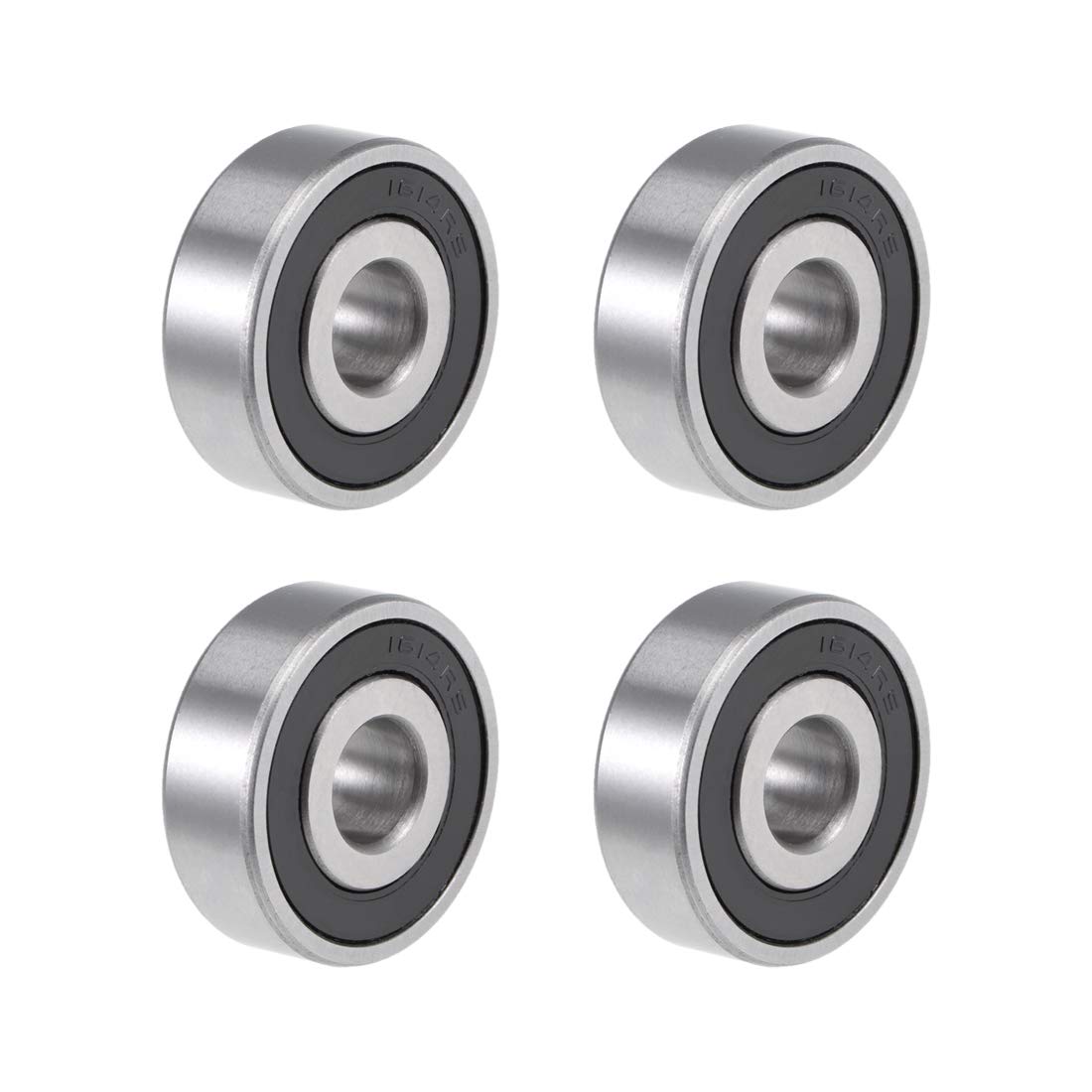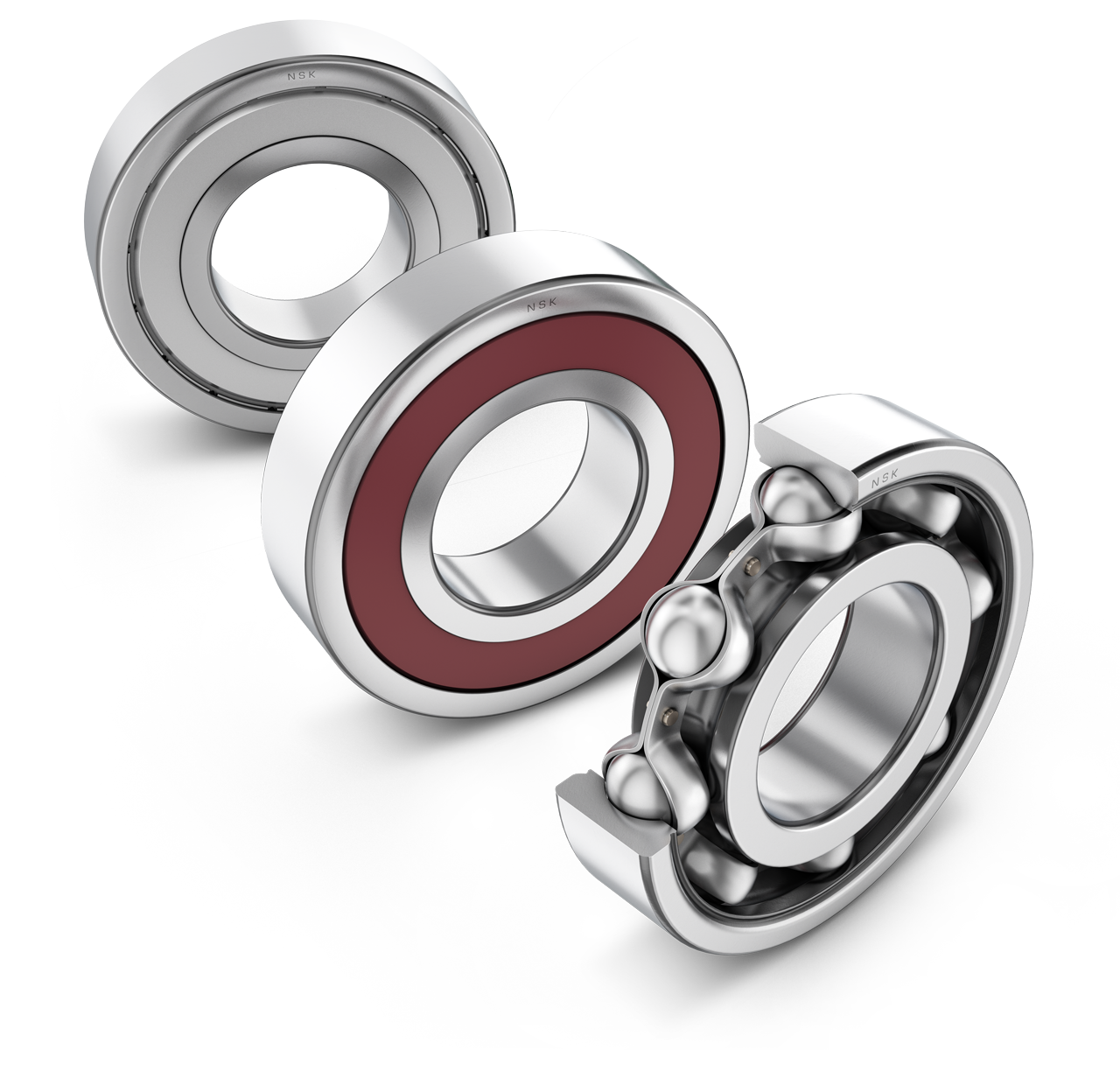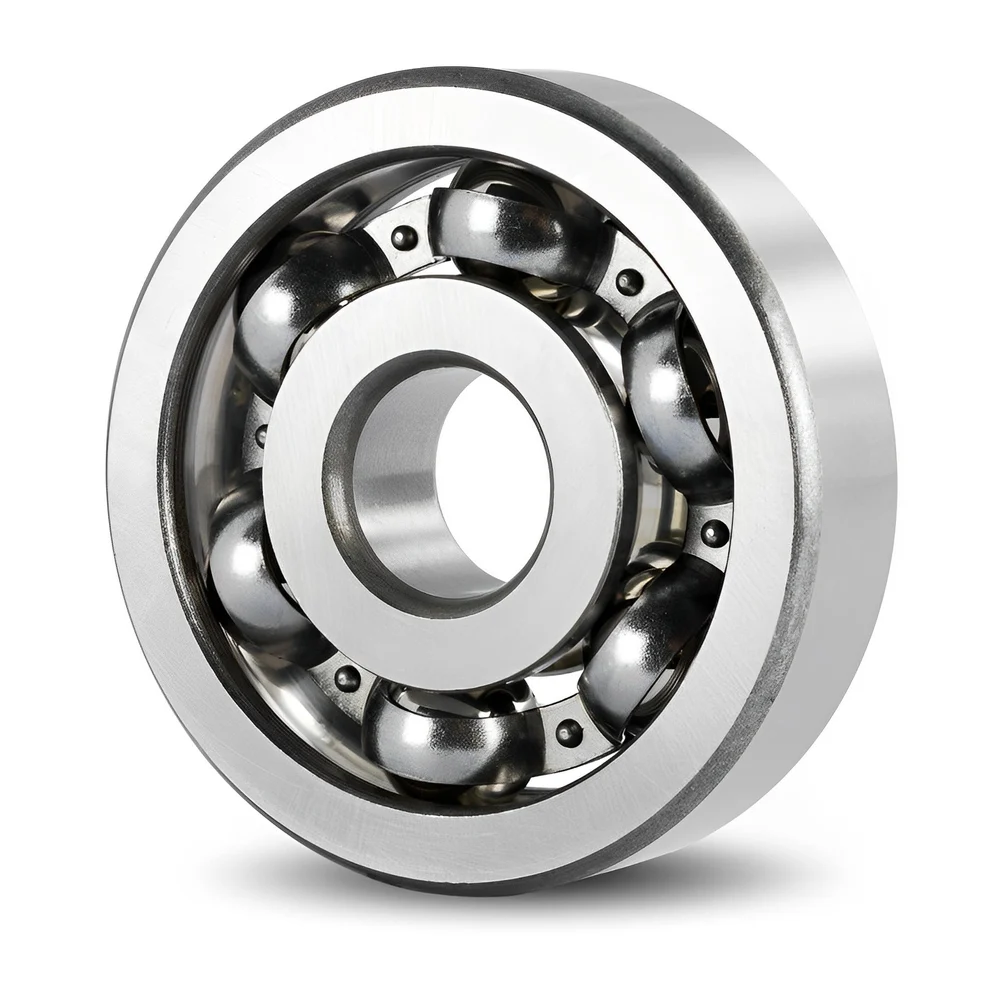
How do deep groove ball bearings contribute to the smooth operation of electric motors?
Deep groove ball bearings play a crucial role in ensuring the smooth operation of electric motors. Their specific design features and capabilities contribute to the overall performance and efficiency of electric motors. Here’s a detailed explanation of how deep groove ball bearings contribute to the smooth operation of electric motors:
- Reduced Friction:
- Low Noise and Vibration:
- High-Speed Capability:
- Radial Load Support:
- Long Service Life:
- Versatility and Availability:
Deep groove ball bearings are designed to minimize friction between the rotating components of an electric motor. The smooth rolling motion of the steel balls within the deep raceway reduces frictional resistance, resulting in less energy loss and efficient power transmission. This leads to smoother operation and improved overall motor performance.
Deep groove ball bearings help dampen vibrations and reduce noise generation in electric motors. The precise alignment of the inner and outer rings, combined with the smooth rolling motion of the balls, minimizes vibrations that can cause noise. This results in quieter motor operation, which is particularly important in applications where noise reduction is desired, such as in household appliances or office equipment.
Electric motors often require high-speed rotation to achieve efficient performance. Deep groove ball bearings are designed to handle high rotational speeds, allowing electric motors to operate at their intended speeds without compromising performance or reliability. The smooth and continuous rolling motion of the balls within the deep raceway enables the motor to achieve and maintain high speeds with minimal friction and heat generation.
Deep groove ball bearings are capable of supporting both radial and axial loads. In electric motors, radial loads are common due to the weight and forces exerted on the rotating shaft. Deep groove ball bearings efficiently transmit and distribute these radial loads, providing support and stability to the motor’s rotating components. This ensures smooth and balanced operation, reducing the risk of premature wear or damage to the motor’s internal parts.
Deep groove ball bearings are designed for durability and long service life in electric motors. They are typically manufactured using high-quality materials and precision engineering techniques. This results in bearings that can withstand continuous operation, high-speed rotation, and various operating conditions without significant wear or performance degradation. The long service life of deep groove ball bearings contributes to the smooth and reliable operation of electric motors over extended periods.
Deep groove ball bearings are available in a wide range of sizes, configurations, and materials to suit different electric motor designs and applications. This versatility allows motor manufacturers to select the most appropriate bearing based on factors such as load requirements, speed capabilities, and operating conditions. The availability of deep groove ball bearings from numerous suppliers ensures easy sourcing and replacement options, further contributing to the smooth operation of electric motors.
In summary, deep groove ball bearings contribute to the smooth operation of electric motors through reduced friction, low noise and vibration levels, high-speed capability, effective support of radial loads, long service life, versatility, and availability. By incorporating deep groove ball bearings into electric motor designs, manufacturers can optimize performance, efficiency, and reliability, resulting in smooth and trouble-free motor operation in a wide range of applications.

What factors should be considered when selecting a deep groove ball bearing for a specific application?
When selecting a deep groove ball bearing for a specific application, several factors need to be considered to ensure optimal performance and reliability. Here’s a detailed explanation of the factors that should be taken into account:
- Load Requirements:
- Speed and Rotational Requirements:
- Size and Dimensions:
- Operating Conditions:
- Precision and Tolerance:
- Lubrication and Maintenance:
- Cost and Availability:
One of the primary considerations is the type and magnitude of the loads the bearing will be subjected to. Determine whether the application requires primarily radial loads, axial loads, or a combination of both. Consider the load capacity, both dynamic and static, of the bearing to ensure it can handle the expected loads without premature failure.
Consider the rotational speed requirements of the application. Deep groove ball bearings are suitable for high-speed applications, but factors such as bearing design, lubrication, and cage material can impact their maximum allowable speed. Determine the required speed and ensure the selected bearing is capable of operating within the desired rotational limits.
Consider the space limitations and the available shaft and housing dimensions. Select a deep groove ball bearing with the appropriate bore diameter, outside diameter, and width that can be accommodated within the given space. Ensure that the bearing’s dimensions meet the requirements of the specific application.
Evaluate the operating conditions, including temperature, humidity, contamination levels, and presence of corrosive or abrasive substances. Choose a bearing with suitable sealing or shielding options to protect against environmental factors. Consider the temperature range and select a bearing with appropriate heat resistance and lubrication compatibility for reliable performance under the anticipated conditions.
Determine the required level of precision and tolerance for the application. Deep groove ball bearings are available in various precision classes, ranging from general-purpose bearings to high-precision bearings for demanding applications. Consider the required dimensional accuracy, running accuracy, and stability to ensure the bearing meets the performance expectations.
Consider the lubrication requirements and maintenance capabilities of the application. Different operating conditions may require specific lubrication methods such as grease or oil, and the bearing should be suitable for the chosen lubricant. Evaluate the maintenance requirements and select a bearing that aligns with the maintenance practices and resources available.
Factor in the cost and availability of the deep groove ball bearing. Consider the budget constraints while ensuring the selected bearing meets the performance requirements. Check the availability of the bearing from reputable suppliers to ensure timely replacements or spares if needed.
In summary, when selecting a deep groove ball bearing for a specific application, it is crucial to consider factors such as load requirements, speed and rotational requirements, size and dimensions, operating conditions, precision and tolerance, lubrication and maintenance, as well as cost and availability. Evaluating these factors will help ensure the chosen bearing is suitable for the application and will deliver reliable performance and longevity.

How do deep groove ball bearings enhance the performance of automotive components like alternators?
Deep groove ball bearings play a crucial role in enhancing the performance of automotive components, including alternators. These bearings provide several benefits that contribute to the efficient and reliable operation of alternators. Here’s a detailed explanation of how deep groove ball bearings enhance the performance of automotive components like alternators:
- Reduced Friction:
- High Load Capacity:
- Enhanced Durability:
- Smooth Operation:
- Reduced Maintenance:
- Compact Design:
Deep groove ball bearings are designed to minimize friction between the rotating components of an alternator. The smooth and precise rolling action of the bearings reduces friction losses, allowing the alternator to operate more efficiently. This leads to improved energy conversion and reduced power consumption, resulting in enhanced overall performance.
Automotive alternators often experience varying loads during operation. Deep groove ball bearings are engineered to handle both radial and axial loads effectively. They have a high load capacity, enabling them to withstand the demanding conditions and loads encountered in alternators. This ensures the bearings can support the rotating components of the alternator without premature wear or failure.
Deep groove ball bearings are manufactured using high-quality materials and advanced manufacturing processes. This results in bearings that are highly durable and resistant to wear, even under demanding operating conditions. The robust construction and materials used in deep groove ball bearings contribute to their longevity and ability to withstand the rigors of automotive applications, including alternators.
Deep groove ball bearings provide smooth and precise rolling motion, which is essential for the optimal performance of alternators. The low friction and high rotational accuracy of these bearings ensure that the alternator operates smoothly and without excessive vibration or noise. This smooth operation enhances the efficiency and reliability of the alternator, leading to improved overall performance.
The use of deep groove ball bearings in automotive alternators helps reduce the maintenance requirements. These bearings are designed for long service life and require minimal maintenance when properly lubricated and installed. Their durability and resistance to wear mean that they can operate reliably for extended periods without the need for frequent inspections or replacements, reducing downtime and maintenance costs.
Deep groove ball bearings have a compact design, which is advantageous for automotive applications where space is often limited. The compact size of these bearings allows for more efficient packaging and integration within the alternator assembly. This compact design contributes to the overall efficiency and performance of the alternator while optimizing the use of available space.
Overall, deep groove ball bearings enhance the performance of automotive components like alternators by reducing friction, providing high load capacity, enhancing durability, ensuring smooth operation, reducing maintenance requirements, and offering a compact design. These benefits collectively result in improved energy efficiency, reliability, and longevity of the alternator, ultimately enhancing the performance of the automotive system as a whole.


editor by CX 2024-04-17